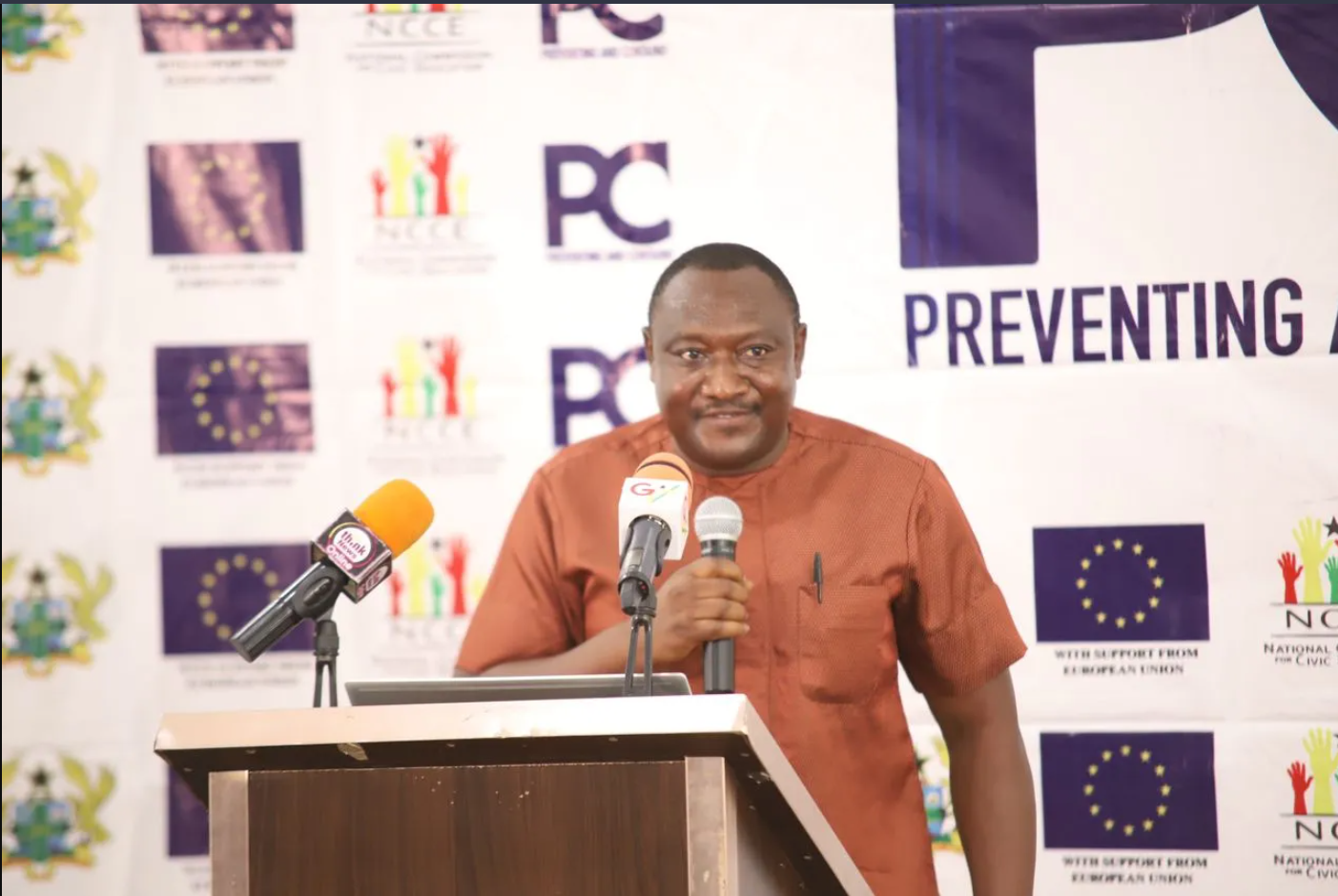Dr. Baba Sayuti, Principal Analyst, National Counter Terrorism and Fusion Centre of the Ministry of National Security, says the threat of eminent terrorist attack on the country calls for an all-inclusive approach by all state actors to combat the threat.
Ghana, in recent times, faces looming threats from violent extremists following increased activities of terrorist groups in the Sahel and the West Africa sub-region, especially its neighbouring countries - Burkina Faso and Mali.
Burkina Faso, for instance, is said to have accounted for 58 percent of all terrorist attacks recorded in the Sahel Region in 2021.
Speaking at a National Commission for Civic Education (NCCE’s) dialogue on violent extremism prevention and containment in Ghana, in Accra, Dr. Sayuti said threats of the terrorist attack on the country had reached an alarming level, but the lack of collaboration among state agencies and institutions especially security agencies over the years had allowed terrorist groups to exploit such gaps to carry out their operations.
He said: “After 9/11, the world realised that there was a gap between state agencies in the area of collaboration because, if you look at the USA, despite their might and resources they were attacked. And why were they attacked? It is because the institutions were not working together.”
Dr. Sayuti noted that the use of force or kinetic approach to combat violent extremism and terrorism had yielded no significant outcome, stressing the need for the adoption of a more tactful approach to curb the threat.
For instance, he noted that, despite the use of force by countries in the Sahel and West Africa sub-region, terror groups continue to wield significant influence, dictating acquisitions, policies, and reactions within security sectors.
“Kinetic approach is not yielding expected outcome,” he said, adding that, “the national counter-terrorism efforts will not achieve its ends without the support and participation of all stakeholders.”
Mrs. Afua Lamptey, Deputy Programme Head, Conflict Management Programme, Faculty of Economic Affairs, Kofi Annan International Peacekeeping Centre, said arms proliferation in the sub-region and Ghana, in particular, remained a major setback to the fight against violent extremism.
She said globally, it was estimated that about one billion firearms were in circulation.
In Ghana, statistics available indicate that some 2.3 million small arms and light weapons are in circulation nationwide, while there are about 200 local gun manufacturers currently operating in the country.
Mrs. Lamptey stressed the need for national policies to be strengthened to check the source of these weapons.
“There is the need to improve stockpile management and reduce the further spread of terrorism and violent extremism to the littoral states of West Africa as well as reduce diversions and trafficking of weapons from government stockpiles,” she recommended.
Ms. Kathleen Addy, Chairperson, NCCE said even though the threat of attack was in the northern and border areas of the country, the rest of the country was entirely not exempted from the threat.
She, therefore, stressed the need for the adoption of a multidimensional approach to reducing the threat, saying it was the best chance for the country.
“Indeed, the threat we face cannot be addressed in isolation as it forms part of a much bigger global network of dangerous nonstate actors determined to destabilize vulnerable States and seize control of natural resources as well as territories,” she emphasised.
Colonel Joseph Kelvin Merdiemah, Director of, the National Centre for Coordination and Early Warning Mechanism, stressed the need for timely dissemination of early warning alerts to inform citizens on measures to take.
The objective of the national dialogue was to engage all key stakeholders to build a strong coalition to prevent the spillover of violent extremist groups into Ghana.
It was also to provide an experience-sharing platform to build synergies, share best practices and reduce duplication of activities.
It forms part of a series of activities the Commission has undertaken in its implementation of the Preventing and Containing Violent Extremism (PCVE) project, funded by the European Union Rapid Response team.
Source: GNA



_
Follow us on our social media pages for more stories and posts from the NCCE.
https://www.instagram.com/nccegh1/
https://www.facebook.com/nccegh/


Leave a comment